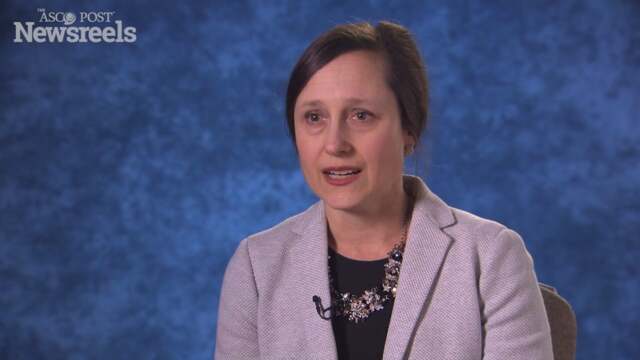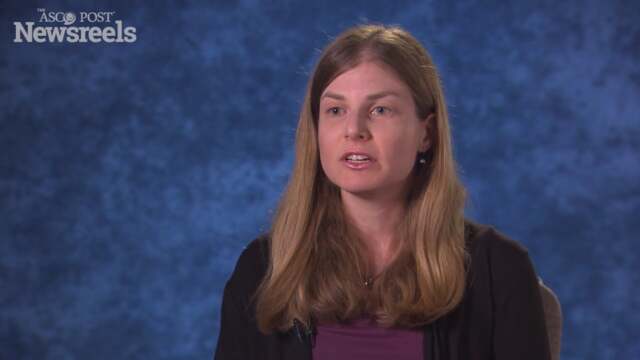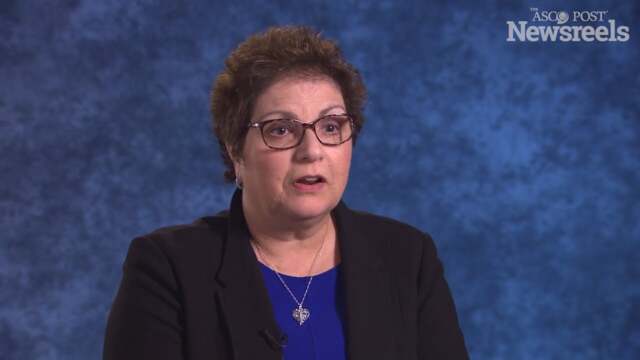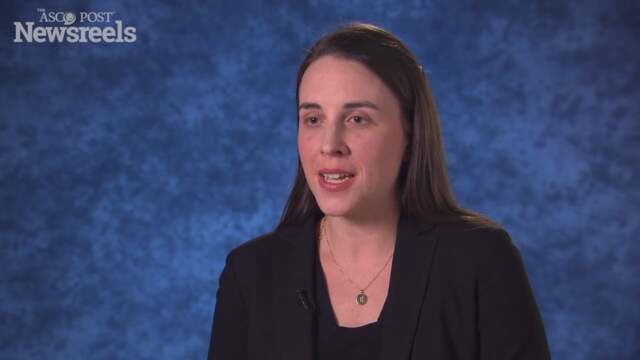Sophia Kustas Smith, PhD, MSW, on Depression and Fatigue: Self-Managed in 'Reimagine'
2017 Cancer Survivorship Symposium
Sophia Kustas Smith, PhD, MSW, of Duke University, discusses study findings on an online, symptom self-management curriculum, known as www.reimagine.me, employed for breast cancer survivors with chronic pain (Abstract 182).
Arti Hurria, MD, of City of Hope, discusses the assessment of older patients with cancer.
Angela R. Bradbury, MD, of the University of Pennsylvania, discusses genetic testing, tumor profiling, and the identification of those at increased risk for second cancers.
Shoshana M. Rosenberg, ScD, MPH, of the Dana-Farber Cancer Institute, talks about ways to help young women move from active treatment to survivorship, based on findings from focus groups in which patients discussed their unexpected physical and psychological experiences after surgery (Abstract 180).
Electra D. Paskett, PhD, of The Ohio State University Comprehensive Cancer Center, discusses an intervention that increased knowledge of lymphedema in breast cancer, and the personal story that drove her research (Abstract 104).
Allison Harvey, MPH, CHES, of George Washington University, evaluates preliminary outcomes among primary care and oncology providers who took part in the Cancer Survivorship E-Learning Series (Abstract 78).





